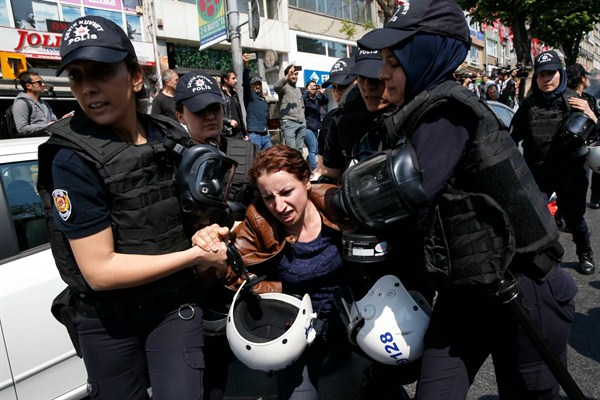A new mosque in traditional Ottoman style is currently being built in Istanbul’s central Taksim Square. Due to be completed later this year, it is just one of thousands of new mosques going up across Turkey. But the construction in Taksim is particularly symbolic—an apparent sign of President Recep Tayyip Erdogan’s conquest of the political landscape and ability to reshape the Turkish nation in line with his wishes. He is currently campaigning for snap presidential and parliamentary elections on June 24 in which he could further cement his grip.
Despite a surprisingly energetic opposition campaign, Erdogan remains the odds-on favorite. But under the surface, things may not be so simple. Turkish society today is too sophisticated to be entirely reshaped by one man. While Erdogan and his party’s religious-nationalist program, combining modern Islamic conservatism with a populist streak heavy on Ottoman nostalgia, appears firmly in place today, there are growing signs that social tides in Turkey are not necessarily moving in the conservative direction that many assume.
Taksim offers a useful window into why. Ever since it became a kind of stage for the Ottoman Empire’s modernization in the 19th century, generations of different ideological persuasions have sought to change the square in line with their worldview. In 1928, five years after the founding of the modern Republic of Turkey, the Republic Monument was constructed in Taksim, symbolizing founder Mustafa Kemal Ataturk’s new nationalist order. The square was then subjected, in the 1930s and 1940s, to a comprehensive redesign by French urban planner Henri Prost, with large avenues, parks, promenades and modernist buildings encapsulating the secular spirit of the Kemalist cause. “Taksim is the representation of the liberal space and secularism,” Mucella Yapici, an architect at the Taksim Solidarity Platform, a coalition of interest groups, recently told a Turkish publication.

